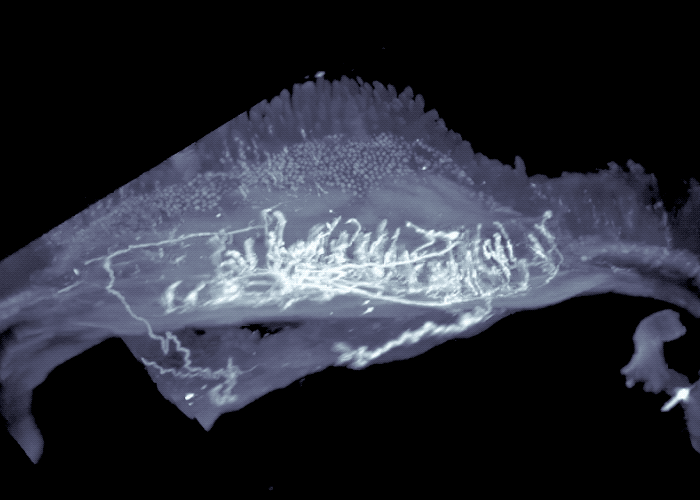With its 100 million neurons, the gut has earned a reputation as the body’s “second brain”—corresponding with the real brain to manage things like intestinal muscle activity and enzyme secretions. A growing community of scientists are now seeking to understand how gut neurons interact with their brain counterparts, and how failures in this process may lead to disease.
Now, new research shows that gut bacteria play a direct role in these neuronal communications, determining the pace of intestinal motility. The research, conducted in mice and published in Nature, suggests a remarkable degree of communication between our nervous system and the microbiota. It may also have implications for treating gastrointestinal conditions.
“We describe how microbes can regulate a neuronal circuit that starts in the gut, goes to the brain, and comes back to the gut,” says Rockefeller’s Daniel Mucida, associate professor and head of the Laboratory of Mucosal Immunology. “Some of the neurons within this circuit are associated with irritable bowel syndrome, so it is possible that dysregulation of this circuit predisposes to IBS.”
The work was led by Paul A. Muller, a former graduate student in the Mucida lab.
How microbes control motility
To understand how the central nervous system senses microbes within the intestines, Mucida and his colleagues analyzed gut-connected neurons in mice that lacked microbes entirely, so-called germ-free mice that are raised from birth in an isolated environment, and given only food and water that has…
